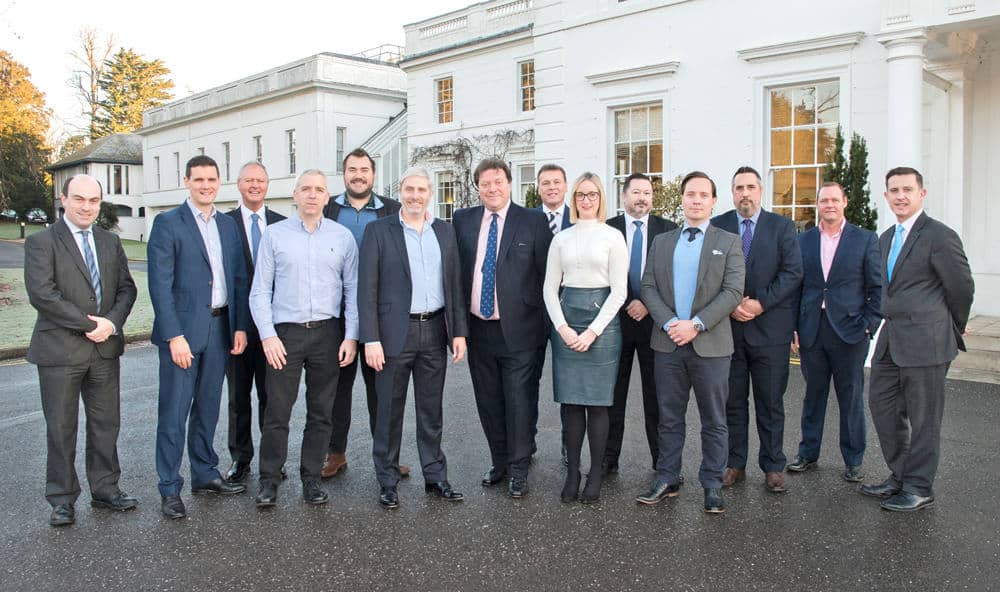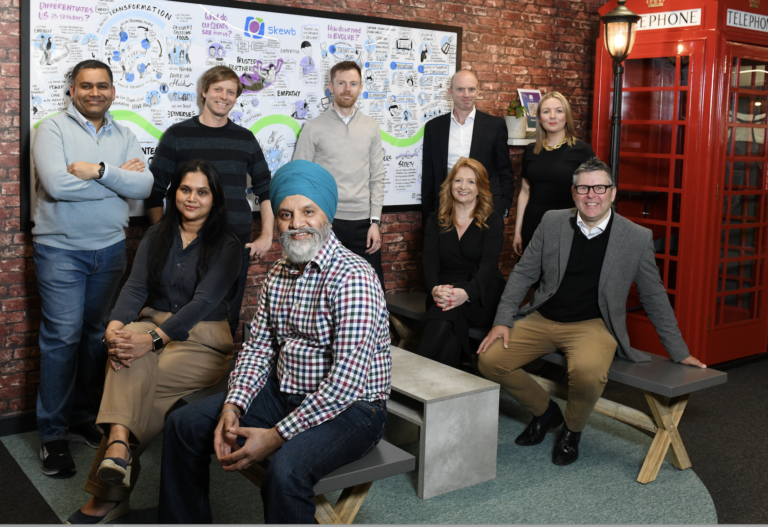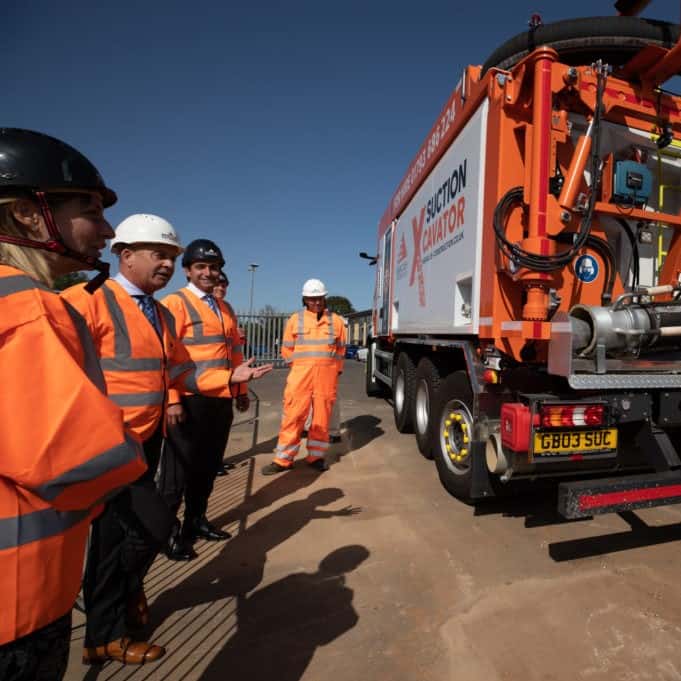Sustaining growth through 2019

The Business Magazine hosted this roundtable with Thames Valley 250 sponsors Henley Business School, HSBC, advisory and accountancy firm BDO, law firm Gateley plc, and commercial and residential property advisers Vail Williams. The roundtable was held at Henley Business School. Tim Wickham reports the roundtable highlights.
Participants
Christopher Avery: Partner and head of Reading office, Gateley plc
Hannah Dutfield: Business development manager, Henley Business School
David Gavins: Sales director, BCMS
Mat Lintern: Global CEO, MMR Research
Gareth Meyer: Head of sales operations, Ultima Business Solutions
Richard Perriman: Vice president, Horizon International Cargo
Chris Ransom: Senior business development manager, Ascot Racecourse
Alex Tatham: Managing director, Westcoast
Sam Turney: Business development manager, Area
Nigel Honnor: Senior executive, BDO
Gareth Evans: Deputy area director, HSBC
Mark Thomas: Manager, technology, Austin Fraser
David Thomas: Partner, Vail Williams
Robert Williams: CEO, Reading Buses
James Harwood: Consultant at The Business Magazine, chaired the discussion
The roundtable participants ran through their preparations for a year of inevitable upheaval as the UK prepares to leave the EU. They discussed what opportunities lay ahead for their businesses, as well as the potential threats. Would growth be organic, through M&A activity or a combination of strategies? They also shared their thoughts on how they are increasing productivity and profitability.
Facing up to Brexit
Specialist M&A adviser BCMS offered its reading of the pulse of business confidence based on the volume of activity it was handling. “Businesses decide to sell for various reasons, often they are owned by executives in their mid-50s who are looking to exit their companies. We are seeing more of them wanting to do deals before the end of March. We are also seeing a lot of overseas investors looking for a bridgehead to get a foothold in the UK before Brexit. They see the UK as offering value for money,” said David Gavins.
For some, Brexit is forcing a change in approach. Sam Turney at office design, build and refurbishment company Area said: “We recently opened 10 offices in major European commercial centres because more of our clients are increasing their footprints in Europe. And, in reverse, we are seeing European companies coming to us who need a base in the UK.”
Brexit uncertainty is creating opportunities for freight forwarder and logistics company Horizon International Cargo. “Our industry is extremely transactional and competitive. Brexit has opened the door to discussions with companies that we wouldn’t have necessarily have got in front of before. We’re finding it easier to get an audience with prospects because they are actively seeking advice – our solutions work with or without Brexit,” said Richard Perriman.
Having the right amount of office space, in the right locations were also important considerations. “Workforces are becoming more transient and companies are opening regional hubs. This flexibility allows companies to scale up and down. I don’t think we have a single client saying they won’t be doing something due to Brexit, it’s just a question of timing. The Brexit effect could be the opposite of the Millennium Bug. Companies invested a lot before the end of 1999 to be ready. Now, we are likely to get to March 29 before the floodgates open in terms of company activity,” thought David Thomas at property agents Vail Williams.
The desire to hire doesn’t appear to be diminished in the Thames Valley observed Mark Thomas at recruitment consultants Austin Fraser. “There is greater flexibility around using contractors, often on day rates. Another difference is that companies that previously outsourced work are bringing it back in house. There is a trend towards having smaller but more productive workforces. And remote working is happening a lot more. We are seeing growth in hiring, so we are positive.”
It’s going to be a busy period for IT products and services provider Westcoast, number one in the TV250, predicted Alex Tatham. “I’ve just cancelled all employee holiday in March. I think Brexit is going to have an enormous impact, especially as customers look to buy before we leave the EU, as they are scared they won’t get products after March. We anticipate supply problems through Dover and have been stocking up Apple and HP products, in particular, in our warehouses. We expect sales during March will be almost double what they were in March 2018. It will make an interesting shape to our year’s performance,” he said.
Gareth Evans at HSBC agreed with Tatham’s comment on stock piling. “We’ve seen customers in various sectors building up their stock levels ahead of Brexit. They are preparing for growth and we are not seeing a slowdown in requests for borrowing, especially for equipment finance and property. There is also a continued level of M&A activity, although some customers have been holding off,” he said.
Opportunities ahead
Despite the relatively pessimistic view of the current state of affairs regarding what form Brexit will actually take, many businesses saw opportunities ahead. Tatham: “Our budget is for sustained growth all the way through the year. There are a lot of interesting technology products coming on to the market. For example, Ultima is investing in automation technology and other progressive resellers are looking at new technologies.”
Gareth Meyer: “December 2018 was the best month in Ultima’s history. The biggest rise in business was for infrastructure, including networking, servers, storage and cloud adoption. I don’t think Brexit is having a negative impact on this type of investment yet.”
Perriman: “We’re a bit like undertakers during wartime: we’re busy because the complexity of Brexit is driving people to us whatever the eventual outcome. However, we are hearing about clients who sell into Europe losing contracts to in-country competitors because they can’t be firm on either prices or transit times.”
On a day-to-day basis, Brexit could trigger some unwanted travel hassles. Business consultant James Harwood commented: “About one third of my work is in Germany, Belgium and France. I don’t know yet how I will get there after March in terms of visa requirements. Brexit is creating opportunities but also hindrances.”
Ascot Racecourse isn’t experiencing any slowdown in demand for its racing product offer and on the conference & events side as a flagship venue is seeing a growth in the use of its facilities as a flagship asset in the Thames Valley. Chris Ransom commented that more local businesses were taking advantage of the venue for events, conferences, product launches and Christmas parties. Bookings for race meetings were strong and he commented that already we are sold out for many areas for Royal Ascot. “We also offer local businesses value in a range of corporate experiences, including new initiatives this year around health and well-being activities using the racecourse’s comprehensive facilities,” he added.
Christopher Avery at lawyers Gateley plc said: “Despite political and economic uncertainty throughout last year, Gateley Group has continued to deliver good financial results. There may be short-term disruption in deal volumes in the UK, depending on how Brexit is progressed, and businesses may be reluctant to make big investments during this time, but we remain confident that 2019 will still be a fruitful year for deal making.”
Threats on the horizon
Gavins: “M&A activity relies on confidence among sellers and buyers. Uncertainty removes that confidence, so if Brexit continues after March that will present challenges to us all.”
Being a British company could pose problems post-Brexit thought Mat Lintern at market research agency MMR Research: “We run the risk of some of our European-based clients using ‘you are a British company’ as an excuse to choose local providers. It’s likely we will be pushed to open a European office, even though, from a delivery perspective, we don’t really need one. This is an extra burden for us just stand still, although long-term it could offer advantages.” he said.
Avery said: “There is certain amount of hesitation by clients due to Brexit. We have been surprised at the sustained flow of corporate work however. With regard to our housebuilder client base, although the bigger companies continue to acquire new sites, we have found that some of the small and medium companies are beginning to hold back on their acquisition programme.“
Robert Williams at Reading Buses said: “There’s an interesting comparison between business and transport generally. At a UK-wide level, there is a shift to home working and online retailing that is causing uncertainty in the transport sector. But in Reading, we are seeing growth in passenger numbers. The only thing I can put this down to is that the Thames Valley is more resilient than the rest of the UK to these trends.”
Recruitment and flexible working
Roundtablers outlined the steps they are staking to find and keep the people they need.
“We have a number of employee benefits at Gateley” Avery said, “but what makes us particularly attractive to new recruits, in comparison to traditional law firms, is that we have three ShareSave schemes in place. This means that all employees can benefit from the profitable growth of the Group and gain access to equity in the business earlier in their careers, this was a key factor in our decision to go to market. As well as this we have flexible working and working from home policies in place, to enable our employees to work where they need to, to get the job done.”
“Recruitment is a live issue for us,” said Lintern. “We need to recruit skilled people from Europe, but the flow coming to the UK is definitely slowing down. That being said, younger people are generally happy to work anywhere, and I think this is going to become more important in the future. We use WeWork, which provides shared office workspaces and technology, providing the flexibility we need as a business and an environment our people really enjoy.”
HSBC is taking the matter in hand, as Evans explained. “We recently opened a centre in the Midlands for employees to work from that is a similar model to WeWork. We recognise that our staff want work environments that are different from traditional, rigid office spaces. Recruiting and retaining skilled workers is a challenge.”
Meyer said Ultima is focusing on apprenticeships. “We’ve made a major change by taking on more apprentices, including in our operational teams as well as technical areas. We’re planning to recruit 31 people this year on apprenticeship schemes. The younger generation is really taking on board technology innovations like AI and RPA,” he said.
Evans continued: “It’s a ‘grow your own’ approach. A lot of professional sector businesses that put graduate recruitment schemes on hold during the 2008 recession are now feeling the repercussions of this. That’s one of the reasons why HSBC is taking on more apprentices to fill skills gaps by nurturing talent earlier.”
Mark Thomas thought part of the problem lay with the way ICT is being taught in schools. “We are finding the more challenging subjects, like web design, aren’t being looked at until university or college. At the moment graduates are in control of the job market, which is why we are seeing some demand £40,000 annual salaries for their first jobs. Finding candidates with the right attitude isn’t easy.”
On the acquisition trail?
The question of how businesses intend to continue growing delivered a range of answers. For Ultima, partnerships are increasingly important. “We are growing organically but also looking at partnerships, especially in Europe for our consultancy and deployment services,” said Meyer.
Tatham agreed that partnerships could be a profitable approach. “Our strategy is to grow organically, although we might purchase if the right opportunities arose. I think it would probably be best to partner with a company first before considering an acquisition,” he said. “We like it when our competitors are busy buying companies – it takes their eye off the ball.”
For Gateley, acquisitions are used to bring in businesses that either supplement its broad commercial legal offering or add complementary businesses and service lines to its Group, as Avery explained. “We look for symbiotic businesses for acquisition to bolster our portfolio that would be good for our client base. For example, we acquired a firm that specialises in reclaiming capital allowances so we could offer this service to clients.”
The question of who is doing the buying and selling, and why, generated some interesting observations. Lintern said: “The market for acquisitions is eroding, our market sector has changed fundamentally over the last few years and will continue to do so at pace, which has left many owners with unrealistic expectations around the value of their businesses. A realignment is needed in our industry or things could get problematic on the acquisition side.”
For Vail Williams, a cautious approach ensures merged businesses will strengthen rather than weaken the firm. David Thomas said: “We combine organic growth with M&A. We’ve acquired four businesses in the last two years and in each instance need to ensure the cultural fit is right. For us, it’s not growth at any cost.”
Gavins noted that price isn’t everything in most of the mergers and acquisitions that it handles for clients. “Business sellers don’t always go for the highest bidder, but for the best fit who will look after their company. And buyers often look for owner/managers who will stay on for a year or so to maximise the value of their purchase. So both sides need to get on with each other.”
Moore Stephens was in the midst of its merger with fellow accountants BDO and Nigel Honnor agreed that financials shouldn’t be the only point of consideration: “The merger between Moore Stephens and BDO allows for both companies to continue with their growth strategies but the numbers alone will not generate success; both sets of clients must benefit and receive added value. Our values and approach to business strongly align which is extremely important as our clients should continue to receive a service which meets their expectations. If these are no longer met, we risk seeing clients leaving our business.”
Although Reading Buses’ base is in the town, it is extending its footprint in the Thames Valley. Williams said: “We recently acquired a bus company in Newbury as part of our expansion strategy in the Thames Valley. We are finding that smaller, independent companies don’t want to become part of national companies and see our local focus more attractive. Acquisitions benefit us by widening our skills base and increasing efficiency.”
Boosting the bottom line
How are companies ensuring they are profitable in 2019? Lintern: “We have shifted some of our resources offshore to India to take out some cost. It has worked very well as we’ve focused on really embedding them and making them feel part of the wider business. We can attract top-end graduates in India for significantly less than we have to pay those in the UK.”
Meyer: “We are automating as many processes as we can. This includes our first-line customer support desk. We’ve done this without losing anyone and it means we don’t need to recruit more people on our helpdesk. We did this to prove that our automation technology works – we’re a tech company using our own tech.”
Tatham: “I don’t think you necessarily lose people by automating and robotics. It improves profitability and means you can invest in new people.”
Perriman: “We invested in an 80,000 square foot warehouse just off the M20 near Dover. In July 2017 it was empty, it’s now at 110% capacity. We’re also making greater use of data for our marketing campaigns, for example, leads gathered at trade shows. The data work is done on the global freelancing platform, UpWork, by people based in the Philippines who do a very good job at a relatively lower cost.”
David Thomas: “We receive emails all the time from around the world about working with us. There’s a revolution coming with technology opening up the world. Ironically, it is just at a time when some countries are closing borders.”
Lintern: “With automation, you have to take people on the journey with you. We use automation and offshoring but make sure our staff in the UK understand our vision. We get them on board so they don’t see developments like these as threats. It frees them to concentrate on doing their creative work.”
Avery: “Trading in the second half for Gateley Group has started well with the business generating further strong growth. We are on track to deliver full year earnings in line with market forecasts. Given the quality of our people, our track record of delivery and the considerable new business opportunities the Group is creating, we are confident that Gateley is well positioned to deliver further growth and the Board looks to the future with confidence.”
Productivity challenges
The panel offered plenty of ideas on how to maintain productivity. Trusting your employees was a common theme. Meyer: “We’ve changed our management style in the last few years. We introduced a very popular coaching platform that empowers employees. It is helping us to remove bottlenecks. Trusting people to do their jobs massively helps us.”
Mark Thomas: “You have to be clear about your vision. Feedback from senior managers found they weren’t being inspired by the bigger picture, just their day-to-day activities. Now, we focus on inspiring our people about our vision and the direction we are taking.”
Evans: “We’ve changed work patterns to improve productivity. Many younger staff prefer to come in late and work late. They miss the rush hour, are more relaxed, and still put in the hours. We get better output by letting people work when it suits them.”
David Thomas agreed: “Too many businesses still follow a legacy 9-5 pattern. Technology is helping companies allow more people to work at client sites, from home or third place environments . This reduces both time commuting and pollution. You’ve got to put your trust in your employees.”
Ransom: “Being more flexible re-energises your staff. It gives them the freedom to channel that energy more effectively.”
Gavins: “We used to be driven by KPIs and processes. We now try not to judge people or impose processes on them. We rely instead on trust, honesty and communication. Another thing is we say don’t email someone – go and have a chat with them instead.”
Avery: “We trust our employees to do their jobs well, but we also encourage and support them to develop skills so that they can reach their full potential. We have a dedicated Learning and Development team who are instrumental in assisting employees to achieve the right skill set to progress to the next level. We also have a number of internal networks which we encourage staff to get involved in or lean on for support, such as our health and well-being network, ‘Thrive’.”
Evans: “We’ve taken a lot of our training back in-house. We set up the HSBC University in Birmingham as a central training hub for the bank. People’s networking has improved nationally and the feedback has been very good.”
Lintern: “A lot of our training aims to create connection points where people feel part of the business and it’s aims. We do a lot more mentoring where the mentor deliberately isn’t part of the employees normal working unit. This means conversations can go anywhere, especially in terms of motivation, lateral thinking and career development.”












